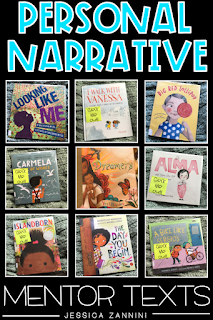Mentor Texts for Narrative Writing
Narrative writing is an essential skill that allows individuals to express themselves creatively and share their stories with others. It enables writers to engage readers through vivid descriptions, compelling characters, and intriguing plots. One effective way to help students improve their narrative writing skills is by using mentor texts.
What are Mentor Texts?
Mentor texts are pieces of writing that serve as examples for students to learn from and emulate. These texts can be in various forms, such as books, short stories, poems, or essays, and are chosen because they demonstrate exemplary elements of narrative writing. By analyzing mentor texts, students can gain insights into structure, voice, characterization, dialogue, and other aspects of effective storytelling.
Choosing Mentor Texts
When selecting mentor texts for narrative writing, it is important to consider the needs and interests of the students. The texts should resonate with them and align with their skill level. Additionally, the mentor texts should be diverse in terms of genres, styles, and themes to expose students to the rich tapestry of storytelling.
Some popular choices for mentor texts for narrative writing include classic literature like "To Kill a Mockingbird" by Harper Lee or "The Great Gatsby" by F. Scott Fitzgerald. These timeless tales can inspire students with their engaging narratives, well-developed characters, and thought-provoking themes.
Contemporary novels like "The Hunger Games" by Suzanne Collins or "Harry Potter" by J.K. Rowling are also excellent mentor texts that appeal to young readers. They can introduce students to modern storytelling techniques and help them explore the elements of adventure, suspense, and world-building.
Benefits of Mentor Texts
Mentor texts provide students with concrete examples of effective storytelling techniques. They serve as models for students to study and imitate, helping them understand how to structure their own narratives and create engaging plots and characters.
By reading and analyzing mentor texts, students can also develop their critical thinking and analytical skills. They can identify literary techniques used by the authors and discuss their impact on the overall narrative.
Furthermore, mentor texts can inspire students by showcasing the power of storytelling. When students see how narratives can evoke emotions, transport readers to different worlds, and provoke deep thoughts, they are more likely to be motivated to improve their own writing.
Using Mentor Texts in the Classroom
Once mentor texts are chosen, teachers can incorporate them into their lesson plans to guide students in their narrative writing journey. Here are some strategies for using mentor texts effectively:
- Read aloud: Begin by reading the mentor text aloud to the class, focusing on the key elements of narrative writing.
- Text analysis: Engage students in discussions about the author's style and techniques used in the text. Encourage them to identify noteworthy aspects of the storytelling.
- Modeling: Use excerpts from the mentor text to demonstrate specific writing techniques or strategies, such as crafting engaging dialogue or creating descriptive settings.
- Writing exercises: Assign writing exercises that encourage students to practice specific narrative techniques inspired by the mentor text.
- Peer sharing and feedback: Provide opportunities for students to share their writing with peers, allowing them to give and receive constructive feedback.
By incorporating mentor texts into the classroom, teachers can nurture students' love for storytelling and guide them towards becoming proficient narrative writers.
Conclusion
Mentor texts are valuable tools for teaching narrative writing. They inspire students, demonstrate effective storytelling techniques, and provide guidance and examples for students to enhance their own writing skills. By introducing mentor texts into the classroom, educators can empower students to become confident and proficient narrative writers.


No comments:
Post a Comment